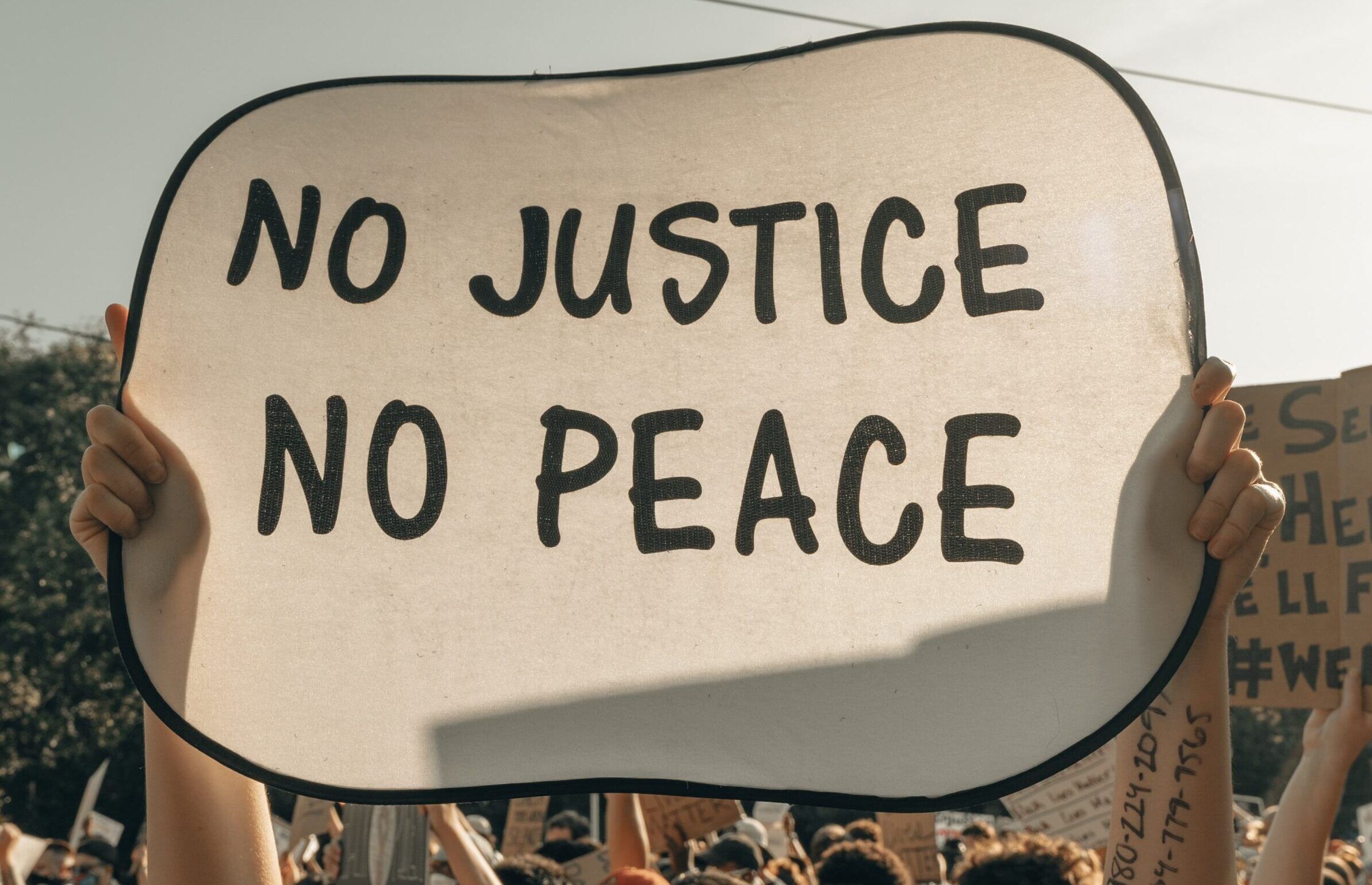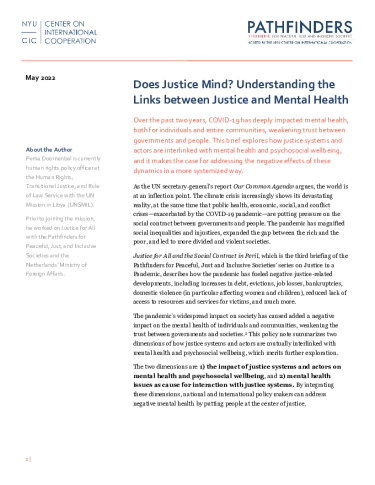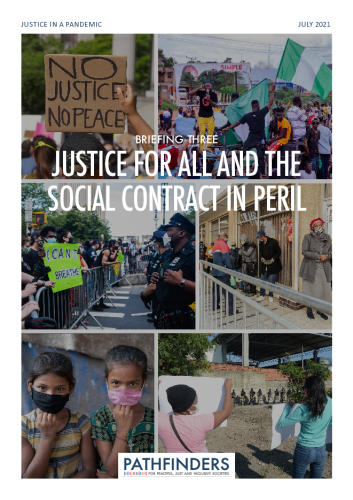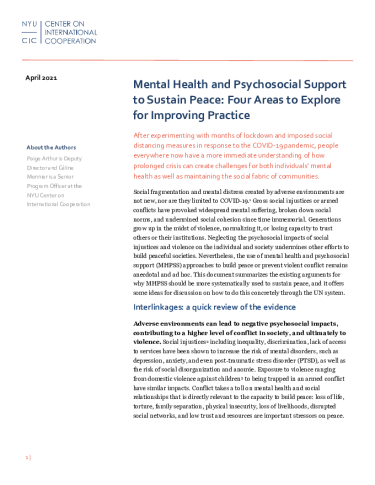Over the past two years, COVID-19 has deeply impacted mental health, both for individuals and entire communities, weakening trust between governments and people.
This brief explores how justice systems and actors are interlinked with mental health and psychosocial wellbeing, and it makes the case for addressing the negative effects of these dynamics in a more systemized way.

As the UN secretary-general’s report Our Common Agenda argues, “the world is at an inflection point.” The climate crisis increasingly shows its devastating reality, at the same time that public health, economic, social, and conflict crises—exacerbated by the COVID-19 pandemic—are putting pressure on the social contract between governments and people. The pandemic has magnified social inequalities and injustices, expanded the gap between the rich and the poor, and led to more divided and violent societies.
Justice for All and the Social Contract in Peril, which is the third briefing of the Pathfinders for Peaceful, Just and Inclusive Societies’ series on Justice in a Pandemic, describes how the pandemic has fueled negative justice-related developments, including increases in debt, evictions, job losses, bankruptcies, domestic violence (in particular affecting women and children), reduced lack of access to resources and services for victims, and much more.
The pandemic’s widespread impact on society has caused added a negative impact on the mental health of individuals and communities, weakening the trust between governments and societies. This policy note summarizes two dimensions of how justice systems and actors are mutually interlinked with mental health and psychosocial wellbeing, which merits further exploration.
The two dimensions are:
- Impact of justice systems and actors on mental health and psychosocial wellbeing
- Mental health issues as cause for interaction with justice systems
By integrating these dimensions, national and international policy makers can address negative mental health by putting people at the center of justice.
[ Download the full brief: How Can Justice Mind? Dynamics Between Justice Systems and Actors and Mental Health ]
This paper is a cooperation between the Pathfinders for Peaceful, Just and Inclusive Societies and the Prevention and Peacebuilding program at the Center on International Cooperation at NYU. CIC and the Pathfinders for Peaceful, Just and Inclusive Societies are grateful for the support of the Netherlands’ Ministry of Foreign Affairs and the Charles Stewart Mott Foundation.


